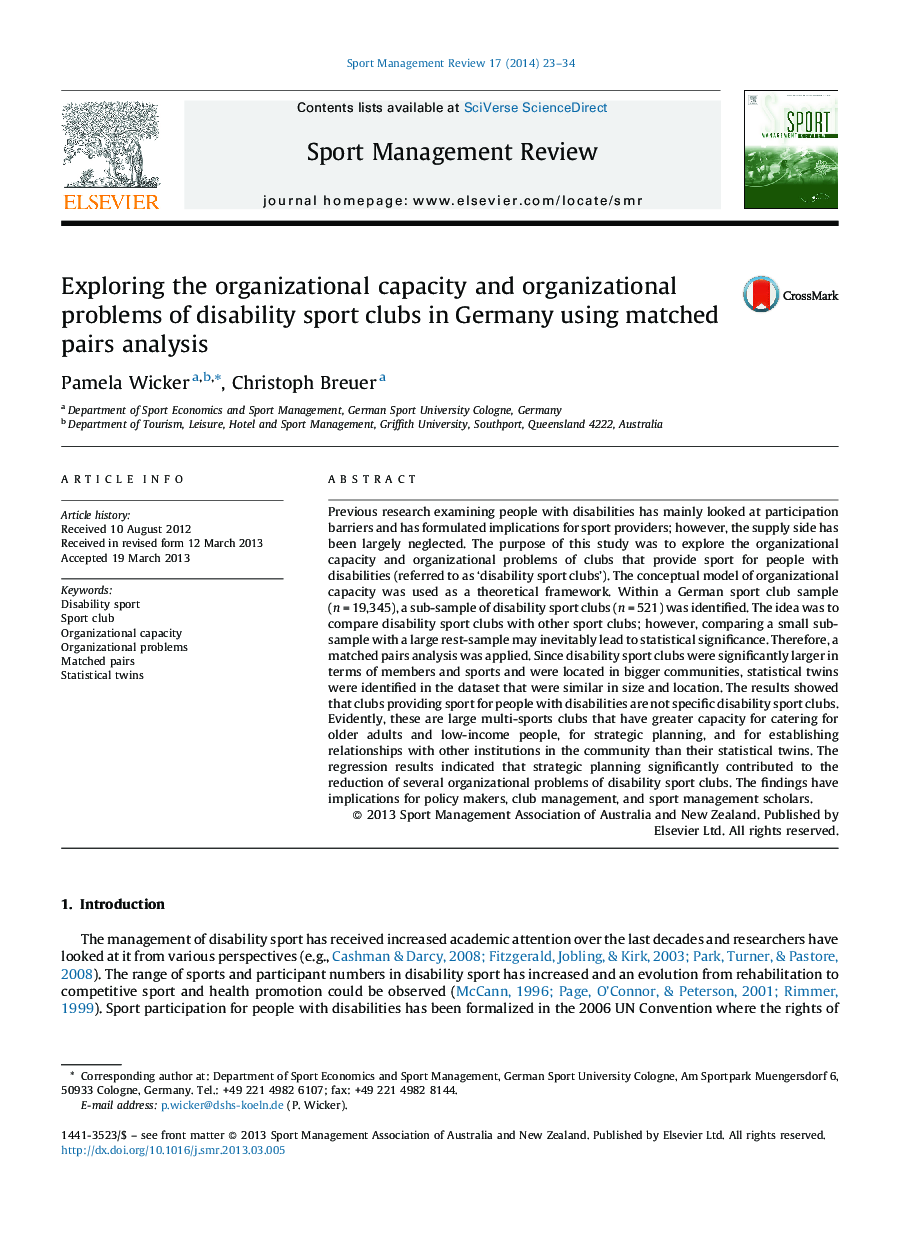| Article ID | Journal | Published Year | Pages | File Type |
|---|---|---|---|---|
| 140938 | Sport Management Review | 2014 | 12 Pages |
•The organizational capacity of disability sport clubs in Germany is analyzed.•Disability sport clubs are compared to other clubs using matched pairs analysis.•These clubs are large clubs providing disability sport and also other sports.•They differ regarding infrastructure, planning, and network capacity.•Strategic planning can reduce organizational problems of disability sport clubs.
Previous research examining people with disabilities has mainly looked at participation barriers and has formulated implications for sport providers; however, the supply side has been largely neglected. The purpose of this study was to explore the organizational capacity and organizational problems of clubs that provide sport for people with disabilities (referred to as ‘disability sport clubs’). The conceptual model of organizational capacity was used as a theoretical framework. Within a German sport club sample (n = 19,345), a sub-sample of disability sport clubs (n = 521) was identified. The idea was to compare disability sport clubs with other sport clubs; however, comparing a small sub-sample with a large rest-sample may inevitably lead to statistical significance. Therefore, a matched pairs analysis was applied. Since disability sport clubs were significantly larger in terms of members and sports and were located in bigger communities, statistical twins were identified in the dataset that were similar in size and location. The results showed that clubs providing sport for people with disabilities are not specific disability sport clubs. Evidently, these are large multi-sports clubs that have greater capacity for catering for older adults and low-income people, for strategic planning, and for establishing relationships with other institutions in the community than their statistical twins. The regression results indicated that strategic planning significantly contributed to the reduction of several organizational problems of disability sport clubs. The findings have implications for policy makers, club management, and sport management scholars.
